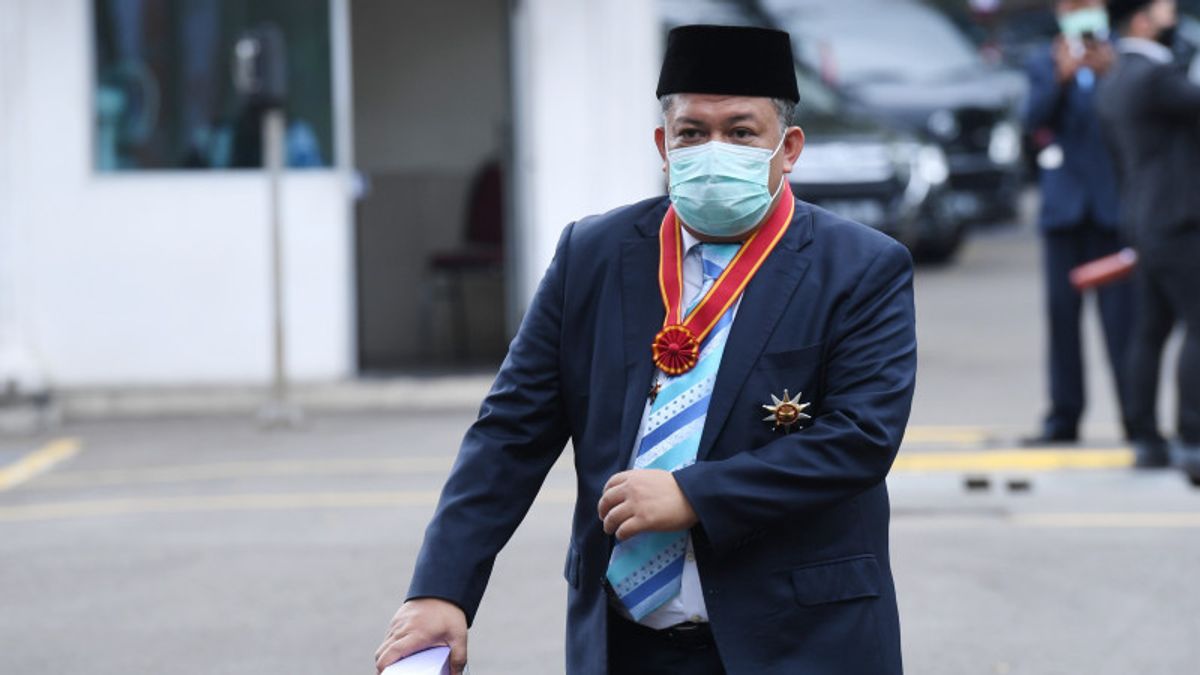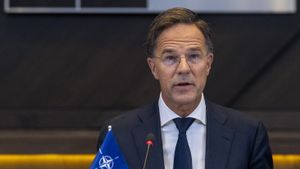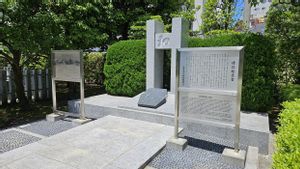JAKARTA - Deputy Chairperson of the Gelora Party Fahri Hamzah suggested the consolidation of the presidential system. According to Fahri Hamzah, the existing system has made the authority of the Corruption Eradication Commission (KPK) exceed that of the president.
Fahri Hamzah's statement in response to the Objection Document or Final Examination Result Report (LAHP) of the Indonesian Ombudsman which stated that the process of the National Insight Test for the Corruption Eradication Commission (TWK KPK) employees had been maladministrated.
"Indeed, this is a big job. Since the New Order's transition to reformation, until now we need a consolidated rereading. Because a system must always be evaluated. Is it strong enough to withstand various tests," said Fahri in the Moya Institute Webinar Series entitled "Controversy." TWK findings of 51 KPK employees" quoted by Antara, Friday, August 13.
Fahri Hamzah said consolidation of presidentialism was needed, because it would hold the president accountable.
"That's why I'm allergic to an institution that exceeds the president. The old law makes the president not responsible for eradicating corruption. For the past 20 years, it seems that there is a single fighter to eradicate corruption. The orchestration of corruption eradication should be everywhere. Said," said Fahri in a press release.
The former Deputy Chairperson of the Indonesian House of Representatives assessed that the findings of the Ombudsman and in the end the KPK issued an objection because there were things that needed to be re-read in the system so far.
"Maybe only in Indonesia, suspects cannot be accompanied by legal counsel. Therefore, when the KPK insisted, Komnas HAM was afraid so that it did not blame the human rights violations committed by the KPK so far. The Ombudsman used to be like that too. That's the Ombudsman. Let alone that, the judiciary, executive, judiciary and legislature at that time were all afraid of the Corruption Eradication Commission (KPK) who liked to frighten," said Fahri.
Meanwhile, observer of national strategic issues Prof Imron Cotan said the controversy over the KPK employees was only a small ripple in the midst of extraordinary challenges in dealing with the COVID-19 pandemic which has ravaged health systems around the world.
"There is a system of chaos in the world and ours that has an impact on the economy and politics," he said.
Imron emphasized that the issue of not meeting the requirements of the 51 KPK employees when undergoing the TWK assessment was certainly important for some people, but in the context of national and state life it looks like a ripple in the middle of the ocean or a storm in a cup, if it is associated with threats from the COVID-19 pandemic that hit Indonesia.
Regarding the decision of the Indonesian Ombudsman, Imron regretted why the DPR gave the Ombudsman law enforcement space.
"Supposedly, if there is maladministration, it can be brought to the Administrative Court. If there is a criminal element, it can be brought to court," he also said.
Meanwhile, UI criminal law expert Chudry Sitompul said that Law Number 35 of 2008 concerning the Indonesian Ombudsman was closely related to Public Services, Law Number 25 of 2009.
"So when it comes to maladministration of constitutional law, it should be brought to the State Administrative Court (PTUN). If you want to give a recommendation, then the recommendation is to take it to the Administrative Court or the general court. Is it a civil or criminal case," he also said.
Chudry emphasized that if it was like that, then the Ombudsman's decision was not in accordance with the provisions of the law by mentioning that the TWK of the KPK was maladministrated.
The English, Chinese, Japanese, Arabic, and French versions are automatically generated by the AI. So there may still be inaccuracies in translating, please always see Indonesian as our main language. (system supported by DigitalSiber.id)













